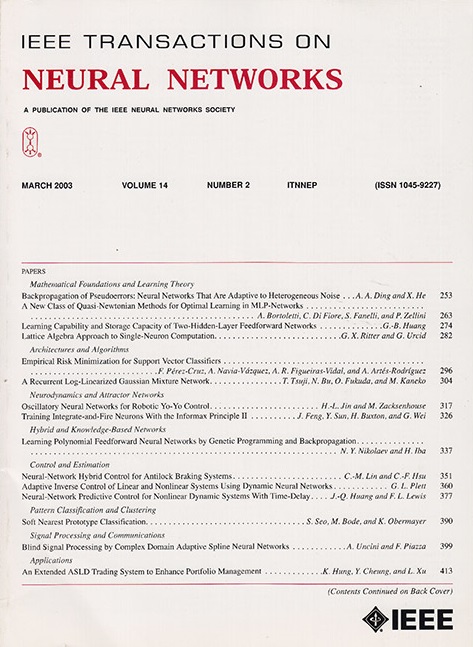利用数据稀疏性抑制离线强化学习中的错误加剧。
IF 8.9
1区 计算机科学
Q1 COMPUTER SCIENCE, ARTIFICIAL INTELLIGENCE
IEEE transactions on neural networks and learning systems
Pub Date : 2025-10-09
DOI:10.1109/tnnls.2025.3615982
引用次数: 0
摘要
离线强化学习(Offline reinforcement learning, RL)旨在从先前收集的数据集中学习有效的智能体,避免实时交互,提高RL的安全性和效率。然而,在实际应用中,离分布状态动作的近似误差会在训练过程中由于误差加剧而导致相当大的高估,最终降低性能。与之前仅仅解决OOD状态行为的工作相反,我们发现所有数据都会引入估计误差,其大小与数据稀疏度直接相关。因此,在抑制误差加剧时,数据稀疏性的影响是不可避免的,也是至关重要的。在本文中,我们提出了一种基于数据稀疏性(IEEDS)的离线强化学习方法来抑制错误加剧,其中包括一种新的值估计方法来考虑数据稀疏性对智能体训练的影响。具体而言,值估计阶段包括两个创新:1)用V-net取代Q-net,更小更密集的状态空间使数据更集中,有助于更准确的值估计;2)通过设计状态感知-稀疏马尔可夫决策过程(MDP)将状态稀疏性引入训练,进一步减少稀疏状态的影响。从理论上证明了状态感知稀疏MDP下IEEDS的收敛性。在离线RL基准测试上进行的大量实验表明,IEEDS具有优越的性能。本文章由计算机程序翻译,如有差异,请以英文原文为准。
Inhibiting Error Exacerbation in Offline Reinforcement Learning With Data Sparsity.
Offline reinforcement learning (RL) aims to learn effective agents from previously collected datasets, facilitating the safety and efficiency of RL by avoiding real-time interaction. However, in practical applications, the approximation error of the out-of-distribution (OOD) state-actions can cause considerable overestimation due to error exacerbation during training, finally degrading the performance. In contrast to prior works that merely addressed the OOD state-actions, we discover that all data introduces estimation error whose magnitude is directly related to data sparsity. Consequently, the impact of data sparsity is inevitable and vital when inhibiting the error exacerbation. In this article, we propose an offline RL approach to inhibit error exacerbation with data sparsity (IEEDS), which includes a novel value estimation method to consider the impact of data sparsity on the training of agents. Specifically, the value estimation phase includes two innovations: 1) replace Q-net with V-net, a smaller and denser state space makes data more concentrated, contributing to more accurate value estimation and 2) introduce state sparsity to the training by design state-aware-sparsity Markov decision process (MDP), further lessening the impact of sparse states. We theoretically prove the convergence of IEEDS under state-aware-sparsity MDP. Extensive experiments on offline RL benchmarks reveal that IEEDS's superior performance.
求助全文
通过发布文献求助,成功后即可免费获取论文全文。
去求助
来源期刊

IEEE transactions on neural networks and learning systems
COMPUTER SCIENCE, ARTIFICIAL INTELLIGENCE-COMPUTER SCIENCE, HARDWARE & ARCHITECTURE
CiteScore
23.80
自引率
9.60%
发文量
2102
审稿时长
3-8 weeks
期刊介绍:
The focus of IEEE Transactions on Neural Networks and Learning Systems is to present scholarly articles discussing the theory, design, and applications of neural networks as well as other learning systems. The journal primarily highlights technical and scientific research in this domain.
 求助内容:
求助内容: 应助结果提醒方式:
应助结果提醒方式:


